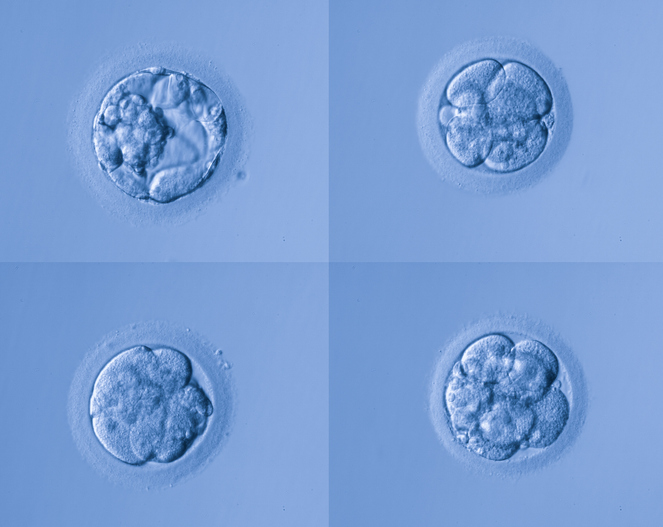.png)
.png)
The decision to donate your eggs is a huge decision, with an enormous impact. It offers the gift of family to those who may otherwise can’t conceive. However, the egg donation process is also carefully regulated to safeguard the health and well-being of both the donor and any potential children born from the donated eggs. Since ensuring the best possible outcomes is important, egg donation programs have specific eligibility guidelines.
Let's dive into the primary reasons why some individuals may not be able to donate their eggs.
People under 21, and over 34, usually cannot donate their eggs
The American Society for Reproductive Medicine (ASRM) recommends that egg donors be between 21 and 34 years old. Egg donation involves medical procedures and binding legal agreements. Most clinics require donors to be at least 21 years old to ensure they fully understand the process and its implications. While age is just a number, fertility is unfortunately not as forgiving. Egg quality and the body's response to fertility medications generally decline after the mid-30s. To maximize the chances of successful outcomes, clinics often focus on donors under 35.
People with certain medical conditions may not be eligible to donate their eggs
Your overall health significantly impacts your ability to donate eggs. Certain medical conditions could pose risks during the donation process or increase the chance of health concerns for future children. Common disqualifying conditions include some mental health conditions, a history of cancer, heart disease, genetic disorders, reproductive diseases, thyroid disorders, and autoimmune diseases.
Additionally, egg donors need to have a BMI of 18-29. Those outside of this range are at increased risk of complications, negative outcomes, and negative side effects from hormonal medications or an egg retrieval.
People also disqualify if they’ve had a sexually transmitted disease within the past 12 months (but can apply after 12 months of treatment). People will be disqualified if they’ve been refused as a blood donor due to other infectious disease or medical conditions. Same goes if they’ve ever had a blood transfusion.
People taking certain medications cannot always donate
The hormonal medications used in egg donation could be unsafe for some individuals. You may be ineligible if you are currently pregnant or breastfeeding, have recently used Depo-Provera, or take medications that interact negatively with fertility drugs.
People with low AMH levels may not be eligible
As you likely know, women have a set egg quantity present at birth. Your eggs mature in ovarian follicles, and each of these follicles produces the anti-Mullerian hormone (AMH). Over time, this hormone level drops; eventually, it drops so low that women naturally develop what's known as a diminished ovarian reserve (DOR).
Your AMH level can help predict how well medication may work to stimulate your ovaries to produce eggs. It also tells doctors what dosage of drugs may be needed to do so. The higher the AMH level, the more eggs generally produced.
At Cofertility, if your AMH < 2, you are ineligible for our Split program. We only accept Split Members with these higher AMH levels as it helps mitigate the possibility of a second cycle to obtain enough eggs that could result in a live birth down the line (for yourself and for intended parents). Nevertheless, it’s important to note that, even with a high AMH level, there is always a chance that you need to do another cycle to improve the odds of a live birth. In the Split Program, you will receive AMH-reading bloodwork prior to being activated on our platform.
If it turns out that your AMH levels are below the required minimum threshold, you would unfortunately be ineligible to move forward with egg donation. However, we can still help you freeze your eggs for your own future use through our Keep program.
People who do not know their family history may not be eligible
Egg donation programs thoroughly review your family medical history to minimize the risk of passing on inheritable diseases. If you are adopted or do not have access to your biological family's medical information, you may not qualify for donation. Programs understand these situations and can discuss options depending on their specific policies.
People with recent incarceration, tattoos, or piercings may be ineligible
Some programs may have restrictions regarding recent incarceration (e.g., jail time for more than two days). Additionally, if you've had tattoos or body piercings within the past 12 months, you may be ineligible if sterile procedures weren't confirmed. This is due to potential infection risks that could impact both your health and the safety of donated eggs.
People of Indigenous American ancestry might face restrictions
The Indian Welfare Act has specific provisions designed to protect Native American children. If you are of Indigenous American heritage and associated with a tribe, these regulations could affect your eligibility to donate eggs. Reach out to learn more.
People who use nicotine products cannot donate their eggs
The ASRM has confirmed a link between nicotine use and decreased fertility. Regular use of nicotine products, including smoking and vaping, will likely make you ineligible. Some programs may allow you to reapply after quitting for a specific period (e.g., 2-3 months for vaping).
Why is egg donation criteria so strict?
Fertility clinics have strict eligibility criteria for a very important reason: to ensure the safety and well-being of the egg donor, the intended parents, and any potential children born from the donated eggs. At Cofertility, we prioritize minimizing health risks for the donor during the donation process and preventing the transmission of inheritable diseases. These rigorous standards all contribute to the best possible chances for successful pregnancies and healthy children, making the strict qualification process necessary.
How to know if you qualify for egg donation
At Cofertility, we are striving to be the best place to be an egg donor (or what we call, a Split Member). We offer a supportive and transparent process that empowers donors to make informed decisions about their egg donation journey.
With our innovative approach, donors get to keep half of the eggs retrieved, plus:
- Free storage of their own eggs in cryopreservation for up to 10 years
- Coverage of all medical costs for the egg donation process
- Connection to the Cofertility community for support all along the way and after too
- The ability to work with the intended parents to decide together what your relationship will look like
If giving your eggs to intended parents sounds like something you would like to do, you may be able to qualify for the free egg freezing process and have your donation process covered too.
Find out more about Cofertility, and take our quiz to see if you qualify for Split!
We believe that every donor deserves to have a positive and empowering experience, and we are committed to making that a reality. That’s why Cofertility was named one of the Best Egg Donor Programs by Egg Donor Connect.
Read more:










